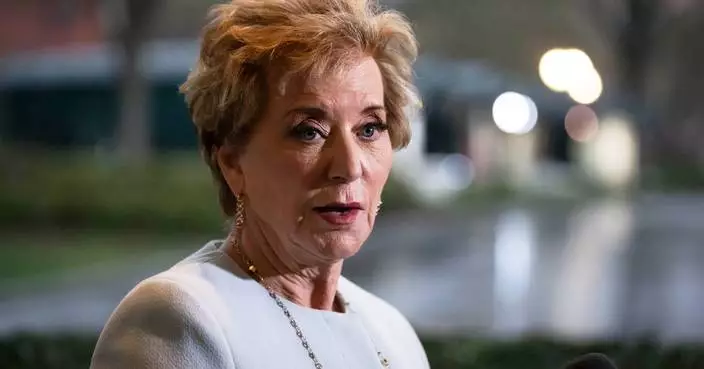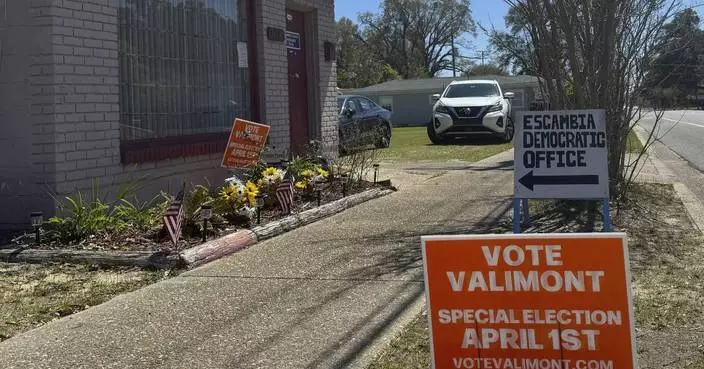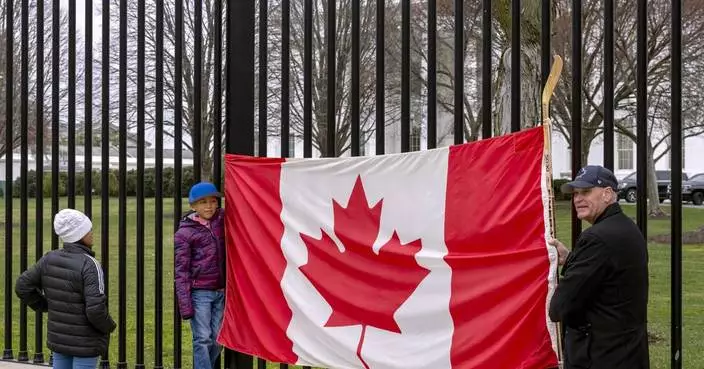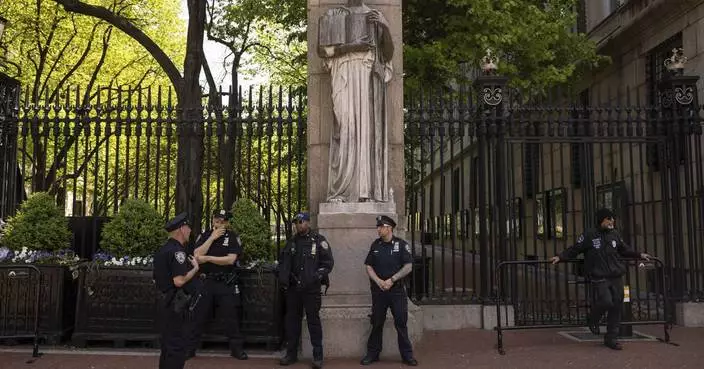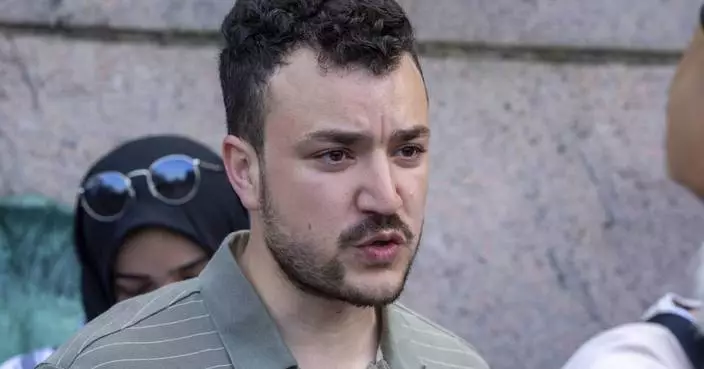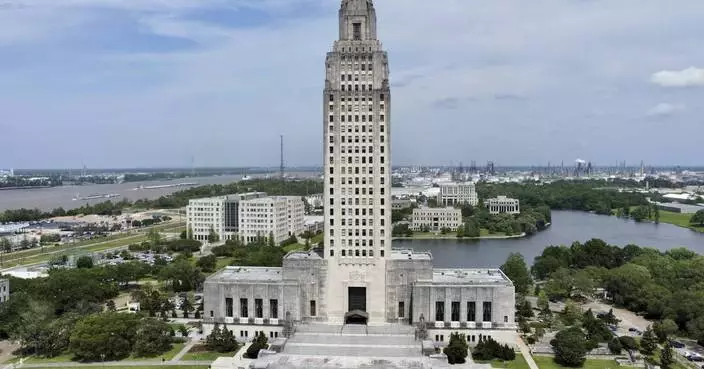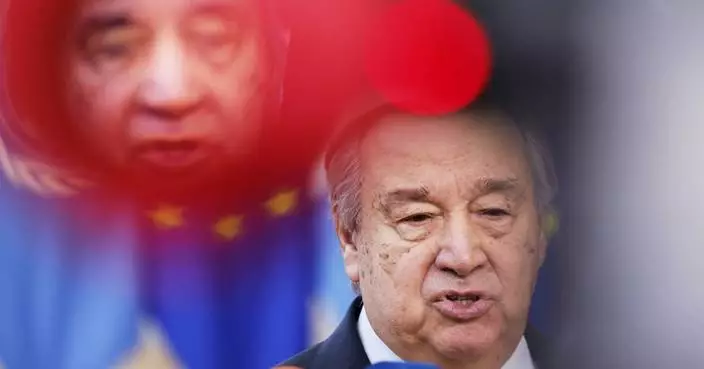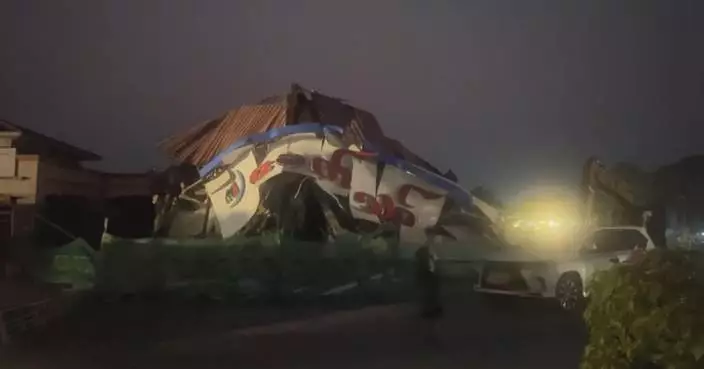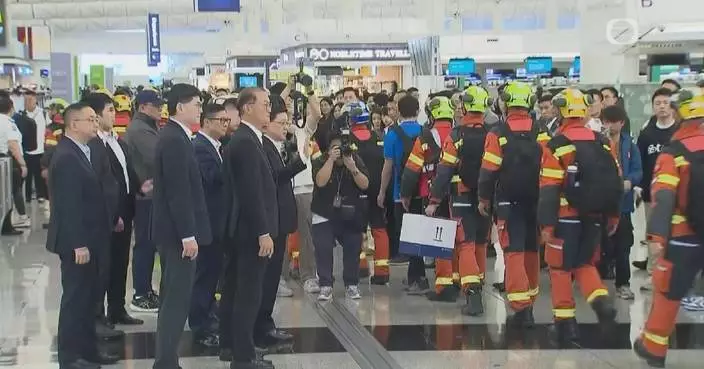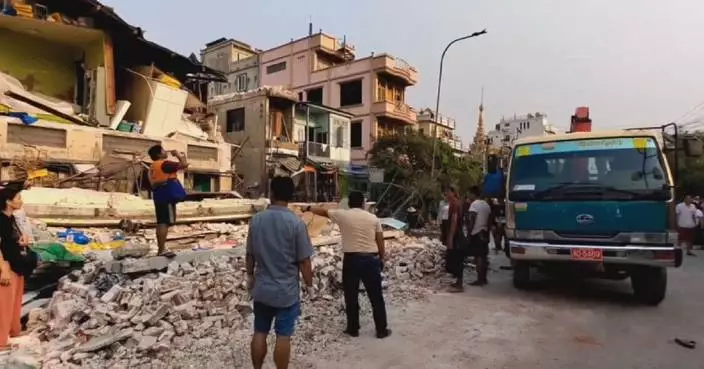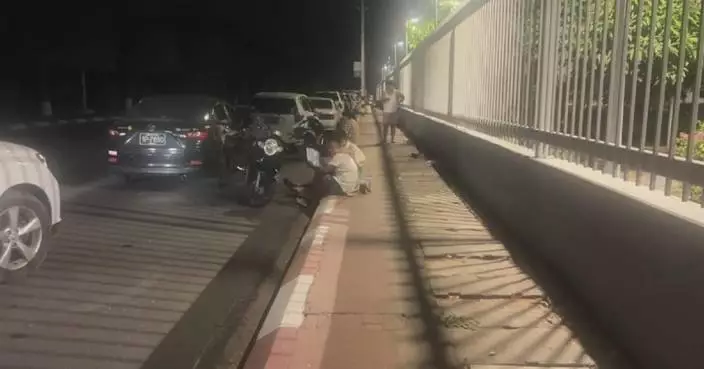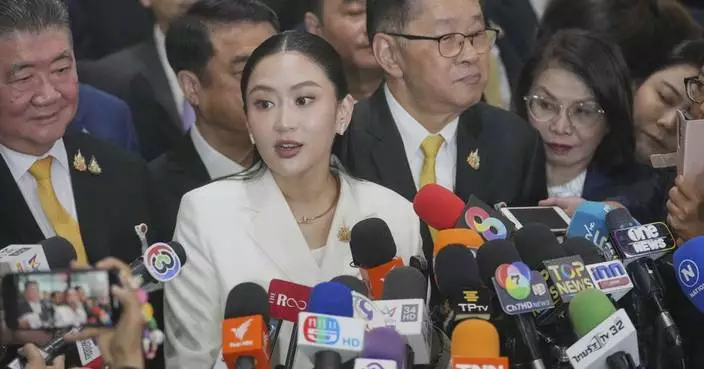The Latest on the 80th anniversary of the start of World War II (all times local):
1:05 p.m.
Poland's president has opened the main commemorations marking the German invasion of Poland 80 years ago that triggered World War II.
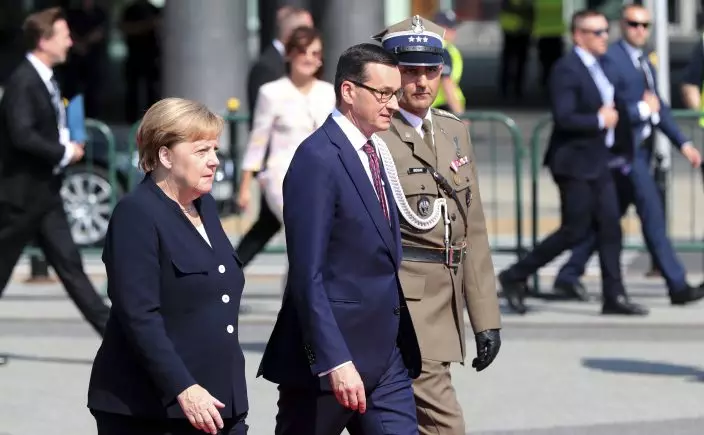
German Chancellor Angela Merkel, left, arrives with Polish Prime Minister Mateusz Morawiecki for a memorial ceremony marking the 80th anniversary of the start of World War II in Warsaw, Poland, Sunday, Sept. 1, 2019.(AP PhotoCzarek Sokolowski)
Andrzej Duda was joined in Warsaw on Sunday by the representatives of dozens of other countries, including U.S. Vice President Mike Pence and the two top leaders of Germany, Chancellor Angela Merkel and President Frank-Walter Steinmeier.
Polish soldiers sang the national anthem and raised the flag at Pilsudski Square, a vast space in the center of the city that was almost totally razed to the ground by the German forces during the war, which began on Sept. 1, 1939.
The ceremonies in Warsaw follow commemorations in the early hours of Sunday at the exact time of attacks on Poland, in Wielun and on the Westerplatte Peninsula in Gdansk.
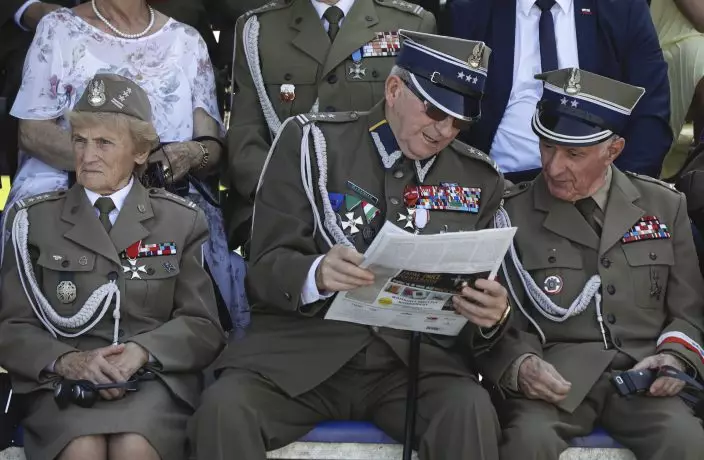
Polish war veterans look at a paper before a memorial ceremony marking the 80th anniversary of the start of World War II in Warsaw, Poland, Sunday, Sept. 1, 2019. (AP PhotoPetr David Josek)
12:55 p.m.
Poland's prime minister spoke of the need for redress during observances of the start of World War II as he talked about the losses that Poland suffered during almost six years of Nazi German occupation.
Mateusz Morawiecki said during ceremonies at the Westerplatte Peninsula on the Baltic coast, where the war's first battle was fought that the war "meant not only fire for the Polish homes, it meant the death of Poland's hopes, Poland's future, the end of Poland's science, Polish universities, Polish factories."
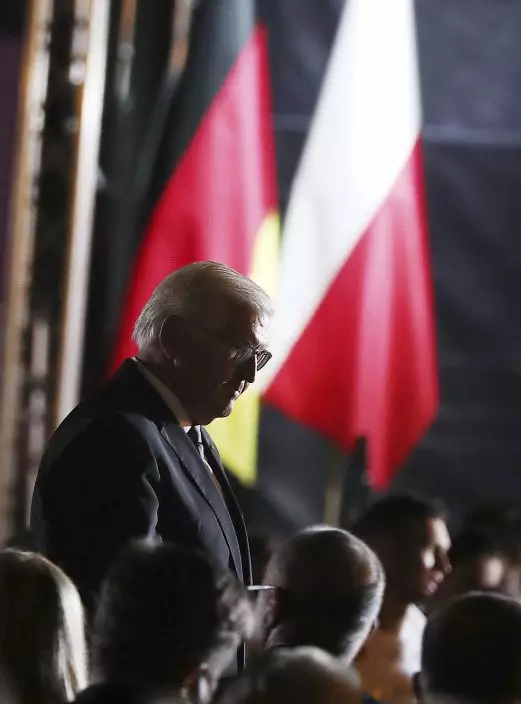
Germany's President Frank-Walter Steinmeier walks after speaks at the commemoration ceremony marking the 80th anniversary of World War II in Wielun, Poland, Sunday, Sept. 1, 2019. The ceremony take place at Wielun and at the exact time – 4.40 a.m. when Nazi Germany dropped its first bombs in the World War II. at the Polish city. (AP PhotoCzarek Sokolowski)
He said that "For this reason we should talk about these losses, we should .... demand redress."
Poland's nationalist government has been raising the issue of reparations from Germany ever since it took power in 2015. Germany says that matter is closed.
4:50 a.m.
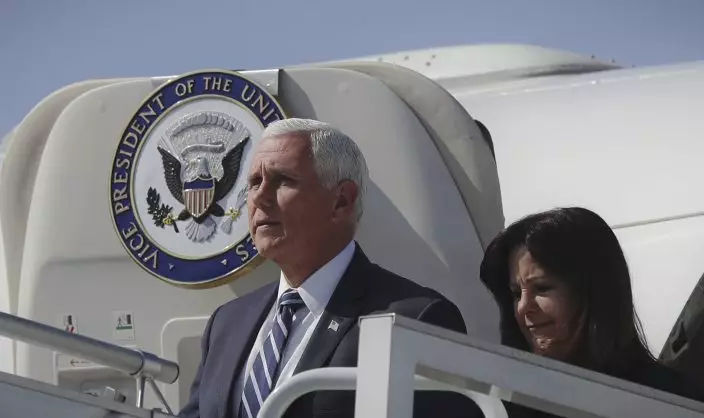
U.S. Vice President Mike Pence and his wife Karen exit the plane after landing in Warsaw, Poland, Sunday, Sept. 1, 2019. Pence will attend a memorial ceremony marking the 80th anniversary of the start of World War II. (AP PhotoPetr David Josek)
The presidents of Germany and Poland have opened daylong observances of the 80th anniversary of World War II start with a ceremony in a central Polish town that was the first target of Nazi Germany's deadly bombings.
The ceremony in Wielun, attended by German President Frank-Walter Steinmeier and his Polish counterpart Andrzej Duda, started Sunday at 4.40 a.m., the exact hour that, according to survivors, the war's first bombs fell, killing civilians.
Minutes later, observances began at Westerplatte Peninsula, on the Baltic coast, the site of the war's first battle as Polish troops put up resistance.
U.S. Vice President Mike Pence, German Chancellor Angela Merkel and many other leaders will also attend the main event in Warsaw.
President Donald Trump canceled his arrival to deal with Hurricane Dorian approaching Florida.
ROME (AP) — Italy's far-right-led government approved a decree that expands the use of Albanian fast-track asylum processing centers to include repatriation hubs, in line with a recent EU proposal.
Under the new decree Friday, the two centers in Albania — originally aimed at processing non-vulnerable migrants rescued in international waters — will now also house migrants who arrived in Italy, had their asylum request rejected and received a deportation order.
In a separate decree, the government also toughened rules to obtain Italian citizenship.
The Albanian centers have remained substantially inactive since their opening in October, due to legal hurdles and amid wide opposition from human rights associations, which believe they violate international laws and put migrants’ rights at risk.
The project — which has cost nearly 800 million euros over a five-year investment — has been a disappointment for the conservative government led by Premier Giorgia Meloni.
After longer than expected construction work, the first three groups of migrants transferred there in October, November and January were sent back to Italy only a few hours later, after Italian magistrates refused to validate their detention in the non-EU country.
Interior Minister Matteo Piantedosi said Friday in a news conference that the new decree didn’t change the bulk of the agreement with Albania, but added new functions for the centers.
“The decree changes the law that ratifies the protocol with Albania, but doesn’t change its content, making it possible to transfer to the already existing (repatriation) center of Gjader also migrants coming from Italy,” Piantedosi explained.
“That would allow us to immediately reactivate that center so that it won’t lose its functions,” he added.
The Italian move, which offers Meloni a new opportunity to relaunch the costly Albanian centers, follows a European Commission proposal unveiled in March to open new “return hubs” to be set up in third countries for rejected asylum-seekers.
Only 20% of people with a deportation order are effectively removed from EU territory, according to the European Commission, which presented the “European System for Returns” as a potential solution.
The proposal aims to set a standard for all 27 members of the bloc and allow national authorities from one country to enforce the deportation order issued by another. Such rules were missing from the EU’s migration and asylum pact approved last year.
The Italian government is also waiting for a ruling by the European Court of Justice, expected this summer, which could enable the Albanian centers to operate as originally intended
In a separate decree, the government also toughened laws on Italian citizenship.
Italian descendants born abroad will automatically become citizens for only two generations, and only those with at least one parent or grandparent born in Italy will become citizens from birth.
Minister of Foreign Affairs Antonio Tajani clarified that many descendants of Italian emigrants will still be able to obtain citizenship, but limits will be set to avoid abuse and "commercialization” of Italian passports.
From 2014 to 2024, citizens residing abroad have increased from some 4.6 million to 6.4 million — a jump of 40%. Italy has over 60,000 pending proceedings for citizenship.
Follow AP’s global migration coverage at: https://apnews.com/hub/migration
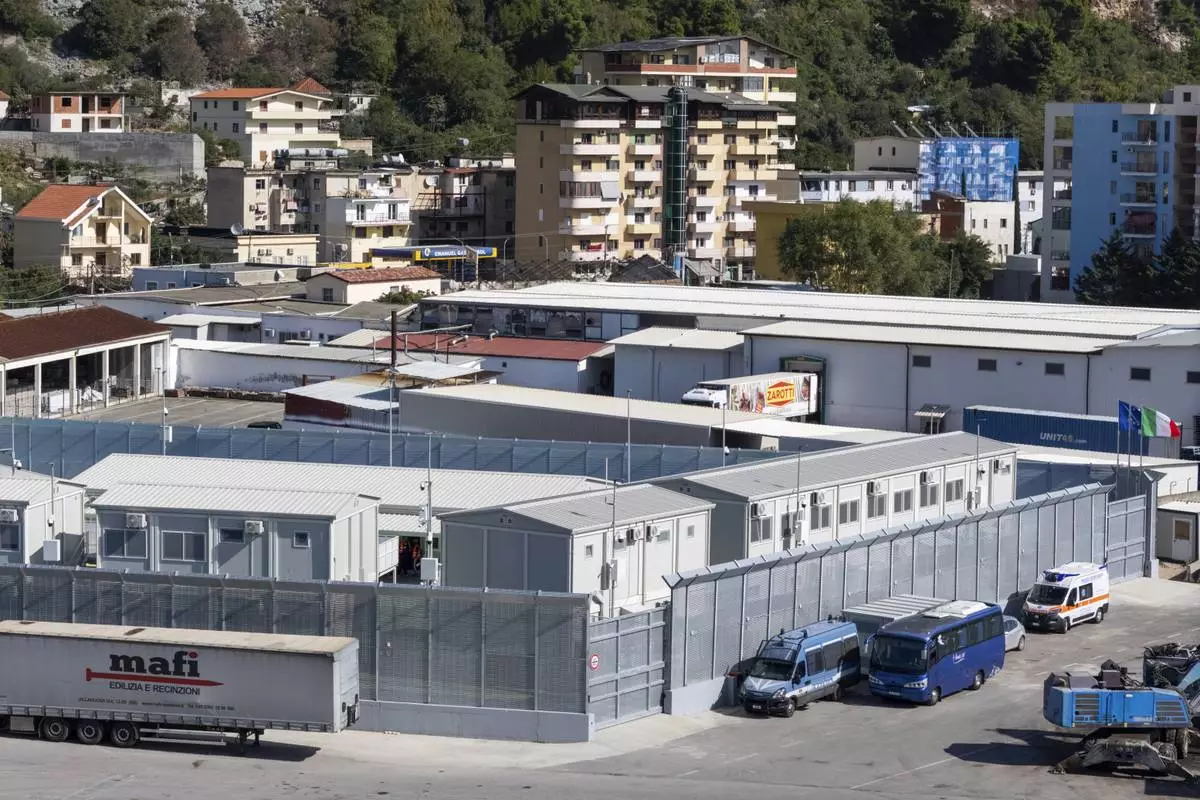
FILE - A view of a migrant processing center at the port of Shengjin, northwestern Albania Wednesday, Oct. 16, 2024, as the first group of migrants who were intercepted in international waters arrived Wednesday. (AP Photo/Vlasov Sulaj, File)
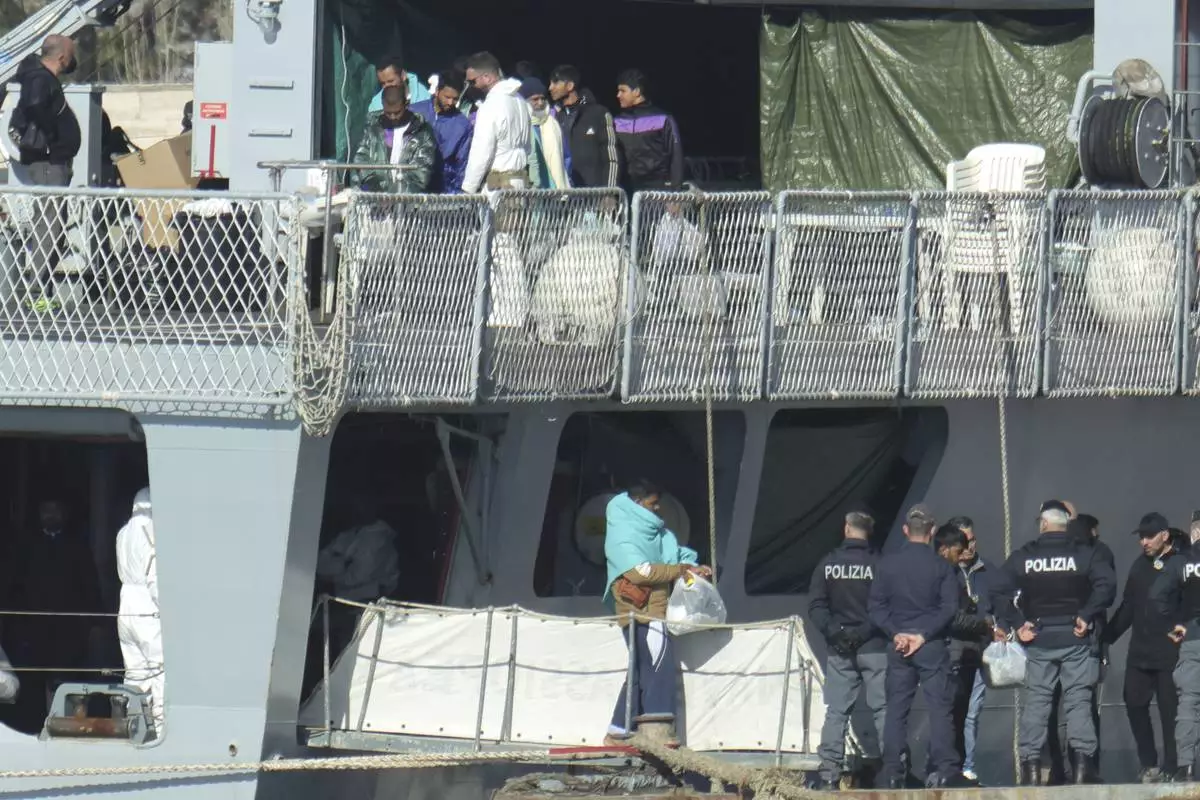
FILE - Migrants disembark an Italian Navy ship, as Italy sent 49 people to Albania for processing following earlier court rejections to Albania, in Shengjin, northwestern Albania, Tuesday, Jan. 28, 2025. (AP Photo/Vlasov Sulaj, File)









